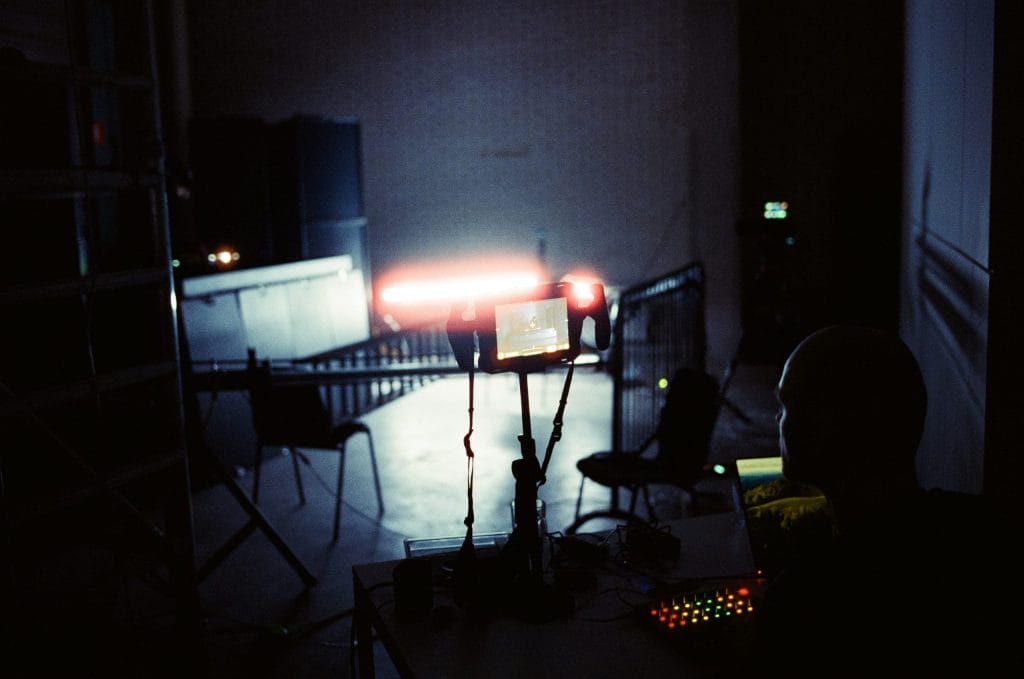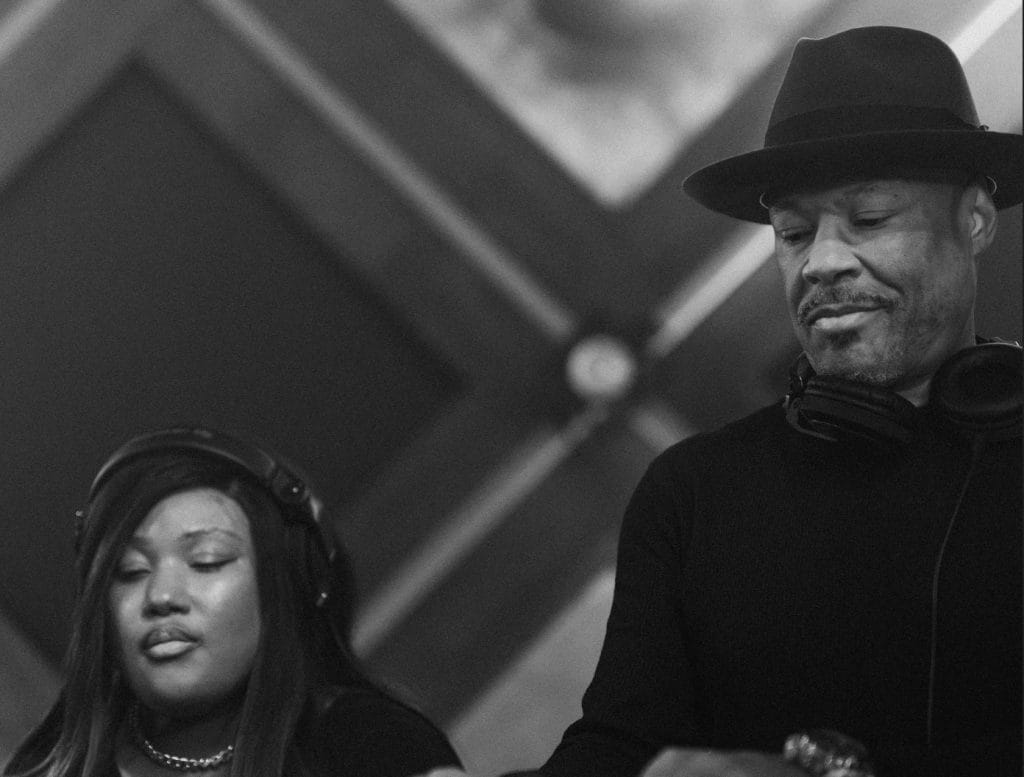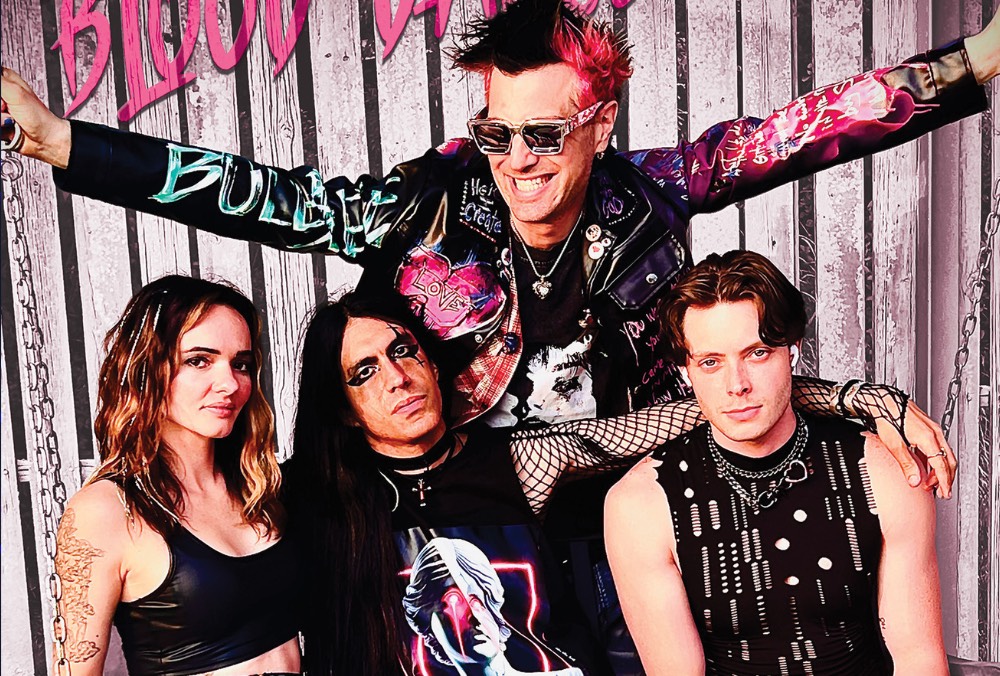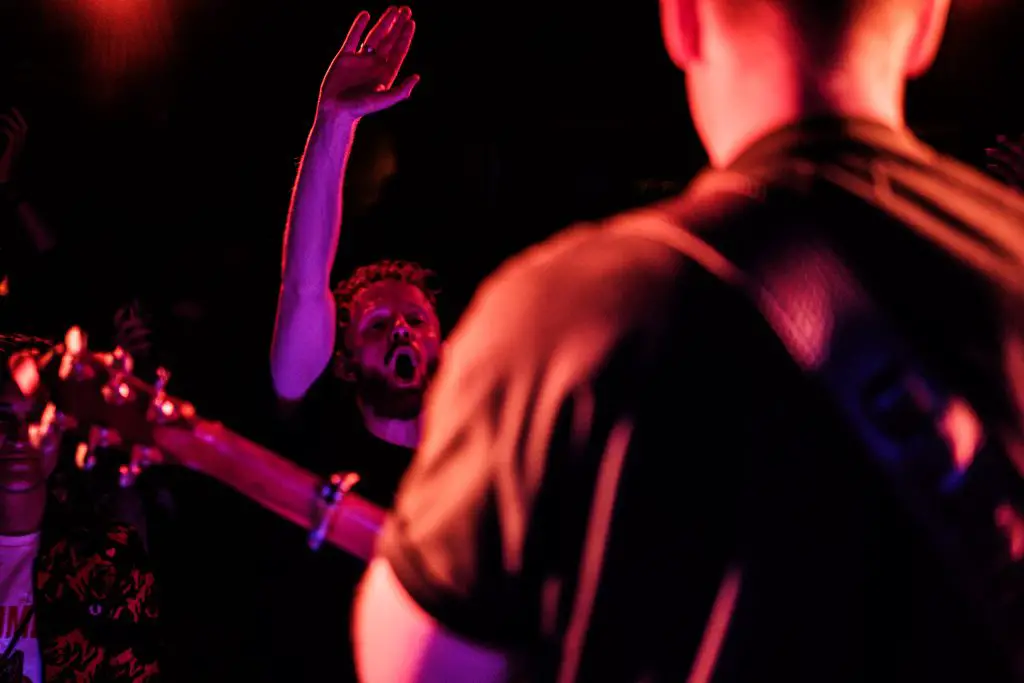What Does Not: A long overdue event looking to shake up a vibrant and culturally crucial part of London’s heritage
Lead photo credit: Sasha Bondarchuk
It’s not news to anyone who’s been paying attention.. Grass-roots music is in a difficult place. Event venues are closing, ticketing is a nightmare, artists are less inspired and involved – not to mention an ongoing lack of support from the UK government.
If you love festivals, you need to hear about the 5% for festivals scheme
It’s an industry that’s long overdue some disruption and London-based, all-female agency What Does Not are aiming to achieve that. Launching their new event series NOISE on the 8th November – as an innovative three-pronged approach, encompassing events, WIP nights, and a “pay-it-forward” ticketing petition, aims to create a sustainable ecosystem for both artists and audiences. The interview delves into the importance of community building, fostering genuine connections, and breaking down barriers to entry for emerging talent. With a focus on collaboration and a commitment to nurturing London’s vibrant music scene, NOISE is poised to make a lasting impact on the future of music discovery and artist development.
We spoke with the company’s founder Christine Charitonos, about the event and her teams aspirations to change the landscape and the narative..
Tickets for NOISE – 8th November – Available here
What sparked your passion for grassroots live music, and how did that lead to the creation of the NOISE initiative?
My connection to music started extremely young, literally from when I was a baby. It was the 80s in New York City and my parents were still in university. My earliest memories are on campus, at gigs, and at vinyl parties. When I was 13, in the 90s, crazy as it sounds, I managed a bar / music venue and was a club promoter too. Life was: school, work, sleep, repeat throughout high school and uni.
Fast forward to now, after a very colourful life, What Does Not only works with the unknown, unsigned, and emerging, across the board. When RAW, our uncensored storytelling night, went from underground to public-facing event in 2022, we began giving a voice to the unheard of all types – emerging musicians were in the mix.
It was by platforming talented grassroots artists at RAWs that we became invested in the challenges they were facing. I’ll spare you the soapbox speech about gentrification, cost of living, and the focus on profit, not people. Or how those things are stifling the very thing the industry depends on: musicians. But on a basic level, we saw that the underground scenes were essentially performing to those on the circuit, and not the general public – which doesn’t really move the needle.
So, my team and I used our experience to try and make an impact. We were all driven by a love of music, influences from growing up in the 80s/90s, life, and our desire to make the industry more humane. And we knew it was within our power to make a significant difference.
Our focus is the future of music – because if the talent can’t survive long enough to bubble up to the top, where will the stars of tomorrow come from? We can’t rely on the flukes of virality or the algorithm’s whims for our A&R / music discovery.
Can you elaborate on the three-pronged approach of NOISE (events, WIP nights, and the petition) and how they work together to support emerging artists?
I’ve been told many times that my superpower is getting to the root of any problem. It’s the reason why bar and club owners were handing over the reins to a teenager. The flipside of that is essentially a sort of OCD that keeps me up most nights. The music industry is facing a huge problem which in order to solve, you have to think outside the box. For me, the beginning of all problem solving starts by looking at culture — the norms and behaviours of people. This is something I had to deal with a lot after spending almost two decades in the creative industries (oh yeah, I moved from hospitality and nightlife into creative direction and consulting).
More often than not, organisations try to make a difference by taking a singular approach to whatever they are trying to solve. But the challenges faced by grassroots musicians are multifaceted – and for me, culture is the connecting thread. This is why the initiative talks about creating a healthy grassroots music ecosystem – and doesn’t present any one person or any single element as the saving grace.
All parts have to work together to support the core elements of the ecosystem which are musicians, audiences, and venues.
I’ll tell you why the answer doesn’t entail just helping emerging artists. If you prefer wine over beer, would you be interested in a craft brewery hop? Probably not. But if we teach you to appreciate the nuance and skill that goes into making craft beer, you might be inclined to explore.
Emerging musicians face a similar challenge: listening preferences are weighted towards music of the past. There’s this stat where 70% of all streaming in the US market is ‘old music’ (defined as recorded more than 18 months ago, but almost always it’s a lot older than that). You only need to look as far as Sophie Ellis Bextor and ‘Murder on the Dancefloor’ experiencing a resurgence, or ‘Running up That hill’ giving Kate Bush her first number one hit since 1985. Old music is everywhere which is great for nostalgia, but not for the evolution of music.
Without banging on too much about the ins and outs, I’ll wrap up by saying that we’re tackling the challenges faced by musicians, audiences and venues in a way where the solution for one group has a positive knock on effect on the issue faced by the other.
The NOISE petition focuses on “pay-it-forward” ticketing. What does this look like in real terms and how can it change things?
It’s the same premise as buying a coffee or a slice of pizza for the next person that comes in the store. But imagine it done at a grassroots music venue by people and brands so as to create pay-it-forward ticket banks. For those who didn’t know, independent music venues are closing at a crazy rate of two per week.
The petition also calls on brands to contribute to these ticket banks using big budgets that are part of their Corporate Social Responsibility efforts to do good and give back to society. The team and I have experience building tech platforms and know that it’s possible to adapt existing tech, like any ticketing platform out there.
What we’re doing pairs really well with the efforts of the Music Venue Trust, it goes back to the ‘it takes a village’ mindset. No single entity can impact the issue. Our focus is the people. Venues would be supported as a by-product of that.
Done right, it can change everything. We’ve said it before, gig tickets are paywalls. Remove those, and exploring new music would be a more seamless experience. We call it ‘open access music’. Fewer financial barriers—a more pure, spontaneous IRL discovery, independent of algorithms and virality. It gives grassroots musicians a fighting chance to find their niche and their audience. But most importantly, it will give them hope in a world of consistent let downs.
You’ve mentioned reaching out to music legends like Mick Jagger and Paul McCartney… any news from any of them?
Trust us, you and the rest of the world will be the first to know. We’re using the tradition of writing open letters as a way of speaking to the general public – and addressing it to someone recognisable who is connected to the issue and to London. We mainly did it to make some noise, pardon the pun. Because it’s difficult to gain cut-through for the grassroots – and society loves a famous person. Don’t get me wrong, we are still working our networks and if it gets a response it’s a bonus. You never know, it’s a funny world we live in – stranger things have happened. P.S. Mick, if you’re reading this, please feel free to slide into our DMs.
What are the biggest challenges facing grassroots musicians in London today, and how does NOISE aim to address them?
One of the musicians on the lineup this Friday said that being an independent artist can feel like screaming into the void. We’re trying to make sure that when they shout, someone hears them. It’s because we view musicians as both people and talent.
Artists have to spin so many plates at once, write, produce, perform music, create content, work a 9 to 5, and so on – while trying to find and maintain an identity. There are so many external factors, and social media keeps telling them to do this, that, and the other.
Understandably, it’s hard to know where to begin if you wanna stand out. NOISE looks at things from the perspective of the artist, the human and their fundamental needs – for example, their mental health. The WIP (Work in Progress) element of the initiative addresses all of this. It’s an intimate space for musicians and the general public that creates the space to reflect on their sound and their identity. All while building genuine bonds with curious listeners who become invested in their journey.
We’re trying to transform the idea of the ‘superfan’ from something transactional to something relational, where the support can be creative, emotional or financial.
The NOISE showcase on November 8th is a significant milestone. What can attendees expect from the event, and what message do you hope it sends to the broader music community?
It’s not just a milestone, it’s a labour of love and the product of years’ of experience. Audiences can expect a highly curated experience with multiple touchpoints, and what has shaped out to be an indoor microfestival – food pop up, urban culture market, live music, etc. They’re all complementary things which form a microcosm of London’s grassroots culture landscape. Plus, our style of curation is very nuanced, touching on the needs of a human, so it’s a pleasure for the attendee, the venue, and the artists.
The message? Well, because we do things in spaces that are not easily accessible, like members’ clubs, we say to the broader music community, “belonging is for everyone – and a healthy ecosystem is built on cooperation and support.” The one thing that can keep the industry alive is supporting each other – it’s already a competitive world.
People often ask me how to build community. My answer is, to take things out of the algorithm’s hands. A like or a comment on a social media post can never substitute being present in the flesh. Humans achieve great things when they stick together.
Looking beyond the launch, what are your long-term goals for NOISE, and how do you envision it shaping the future of London’s music scene?
For now, we’re just trying to get through the rollercoaster of putting on the launch. I joke that if NOISE doesn’t kill me, it will make me stronger ( the brand is called ‘What Does Not’, from Nietzsche’s aphorism ‘what does not kill you makes you stronger’)
For now, NOISE will be monthly, and in time, we hope to do them more frequently across London – with a view to take this on the road too. The plans are pretty huge and lofty and there’s already been a lot of movement but we can’t say too much. What we can reveal is that this type of localisation and placemaking belongs in multiple cities and countries. The reason we added the microfestival element to it is because we believe that it’s a great way to really bring something that’s localised to life.
As for the future of the London music scene, NOISE could make the city a place renowned for music discovery, where grassroots talent can thrive. Call us idealists, but if the initiative takes off in the way it is designed, London becomes the global capital for IRL music exploration – no barriers, just freedom of expression and the freedom to be curious.
How is NOISE going to be involved with the Mayor of London’s “London Creates” campaign? Do you think Khan & the government more widely, should/ could be doing more?
The gap between the grassroots and the ‘grasstops’ is quite big across all industries, not just music.
At the moment we’re sitting at roundtables with heavy-hitters in the space and we actually have a voice – which we’re using to communicate the struggles on the ground to those with influence and power. NOISE has made it to be part of this ‘coalition’ so that’s a good first step. We’re hoping that as time goes by, this evolves in a direction that we could be instrumental in influencing genuine change.
Absolutely the Mayor and the government could be doing more – there’s a disconnect which we hope to bridge. And because we’re so on the ground, we have solutions that represent and are relevant to actual, tangible issues. It goes back to people implementing a singular approach, i.e. expecting a Night Czar to be a magic wand for the sector, when really we need to be thinking systemically about the problems and how to solve them.
We’re also well aware that inspiring collaboration across the sector will be a hurdle – it’s a common challenge that comes with large scale projects that have many moving parts. Overcoming the natural territorialism of humans is tricky, but there are workarounds.
Don’t get me wrong, it’s a positive step that the Mayor of London is getting behind the issue. It creates much needed awareness and perhaps even a shift in perspective. From our POV, we’re staying focused on trying to change the world one event at a time.
Connect with What Does Not: YouTube | Instagram
The post Event Preview & Interview: What Does Not founder opens up on Grass-Roots music in London and the NOISE initiative appeared first on Magnetic Magazine.






